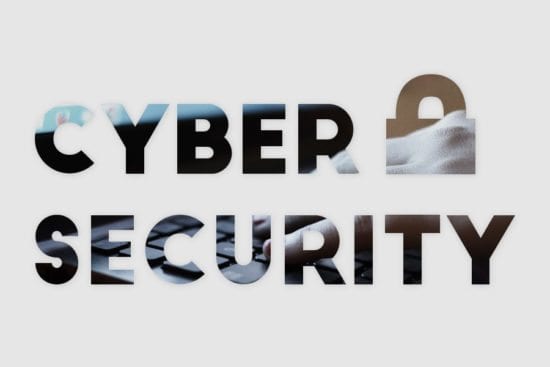Cybersecurity is one of the most widely discussed topics in the world of technology today. Despite security solutions being constantly developed and improved, small businesses (SMBs) and home office workers (SOHOs) remain largely unprepared for a potential data breach or cyberattack.
Furthermore, small businesses often believe they are too small to be the targets of cyberattacks. But the fact of the matter is, around a quarter of SMBs and SOHOs do not have any cybersecurity strategies in place, so are one of the primary targets for cybercriminals as a result. And with home working becoming a necessity for most organisations, especially in these uncertain times, it has never been more critical for businesses to invest in effective cybersecurity.
As new and innovative technologies are being introduced almost daily to aid remote working, analysts are predicting a surge in cyberthreats. This is due to businesses investing in the latest technologies, such as 5G and IoT, but failing to implement the necessary security software to protect sensitive data. In the current landscape where COVID-19 has changed economies and working practices overnight, now is the time for businesses of all sizes to proactively engage in the world of cyberthreat prevention, or risk losing years of reputation in a matter of minutes.
Failing to act means failing to protect
For millions of individuals across the world, working from home has become the new norm, and many have therefore set up a temporary home office to accommodate this change. However, with this mass movement of workers come increased threats, adding to the fact that 2/3 of global SMBs are currently experiencing cyberattacks. The increase in cyberattacks suggests that those who refuse to acknowledge the risk and fail to invest in cybersecurity will inevitably face a multitude of severe consequences.
As well as being exposed to the malicious attacks of cybercriminals, companies that don’t put in place the correct measures and security systems may also face legal and regulatory repercussions. And during this already challenging time, businesses cannot afford hefty fines.
The importance of cyber-hygiene
For many workers, cybersecurity is not a key focus for daily operations – only because it has never had to be. Now, however, with most employees currently working from home, individuals must take responsibility of their own cybersecurity, and there are a few things to consider when maintaining basic cyber-hygiene to keep vital data and information safe from attacks. It is ultimately the responsibility of the business leaders to ensure their remote workers are keeping on top their cyber-hygiene checks. These vary from ensuring the home WiFi is secure and implementing anti-virus software, to simple common sense – including, deleting suspicious emails and locking the computer screen when stepping away even for a moment.
For SMBs, the primary focus should be on bringing awareness to employees who may lack experience in cybersecurity – especially since it was small businesses that experienced 43% of data breaches according to Verizon’s 2019 report. Bearing in mind that in 2019, over 55% of SMBs experienced at least one cyberattack. Business owners cannot afford to ignore the risk any longer. By encouraging cyber-hygiene as a fundamental practice, organisations will be able to take ownership of cybersecurity systems and processes to empower employees to take responsibility – giving everyone a part to play in protecting their home and business networks from cyberattacks.
Effective cybersecurity systems
To ensure SMBs and SOHOs have the most effective cybersecurity systems in place, various components that require investment – without these, protection cannot be guaranteed. To empower remote workers during this time of change, organisations must ensure that each employee has the necessary security licences – including anti-virus, content filtering and intrusion detection – to set up a cyberthreat prevention system successfully.
Firewalls and Advanced Threat Protection
On top of this, businesses must implement firewalls to restrict external access to employee devices through vulnerable public WiFi networks. Firewalls protect by shielding computers or networks from unnecessary – and potentially dangerous – network traffic or viruses
There are two categories of firewalls – hardware and software – and businesses must understand which form of protection they require. Given the increase in cyberthreats currently targeting SMBs and home offices, employees and business leaders would be wise to invest in firewalls with Advanced Threat Protection (ATP) software, to ensure maximum protection against sophisticated malware targeting sensitive data. ATP software can provide multi-layer protection for businesses that identify and alert workers to any threat detection signatures. On top of the regular signature based UTM (Unified Threat Management) services, ATP provides an additional layer of live protection for undetected malware not visible in any data base so far. The database of threat information, collated by ATP systems, can then be analysed to help businesses identify active threats and stop malware before it spreads. During a time where most of our daily activities are online, this level of security is essential.
Software Management and Analytics
Today’s vulnerable and changing cybersecurity landscape also demands new levels of visibility, automation and analytics throughout the corporate network. Software management and analytics tools enable SMBs and SOHOs to monitor and address the highest priority threats as quickly and efficiently as possible. The analysis of data means employees can produce proactive security measures – for example; monitoring network traffic can be used to identify indicators of potential compromise before an actual breach occurs. Prevention to this degree can help secure the sensitive data held by businesses during this turbulent time and shifting work patterns.
During this challenging time, it will be the SMBs and SOHOs that demonstrate clear understanding and precaution when it comes to cybersecurity that will survive the ongoing Covid-19 crisis and thrive in its wake – having protected confidential information and their reputation with it.

